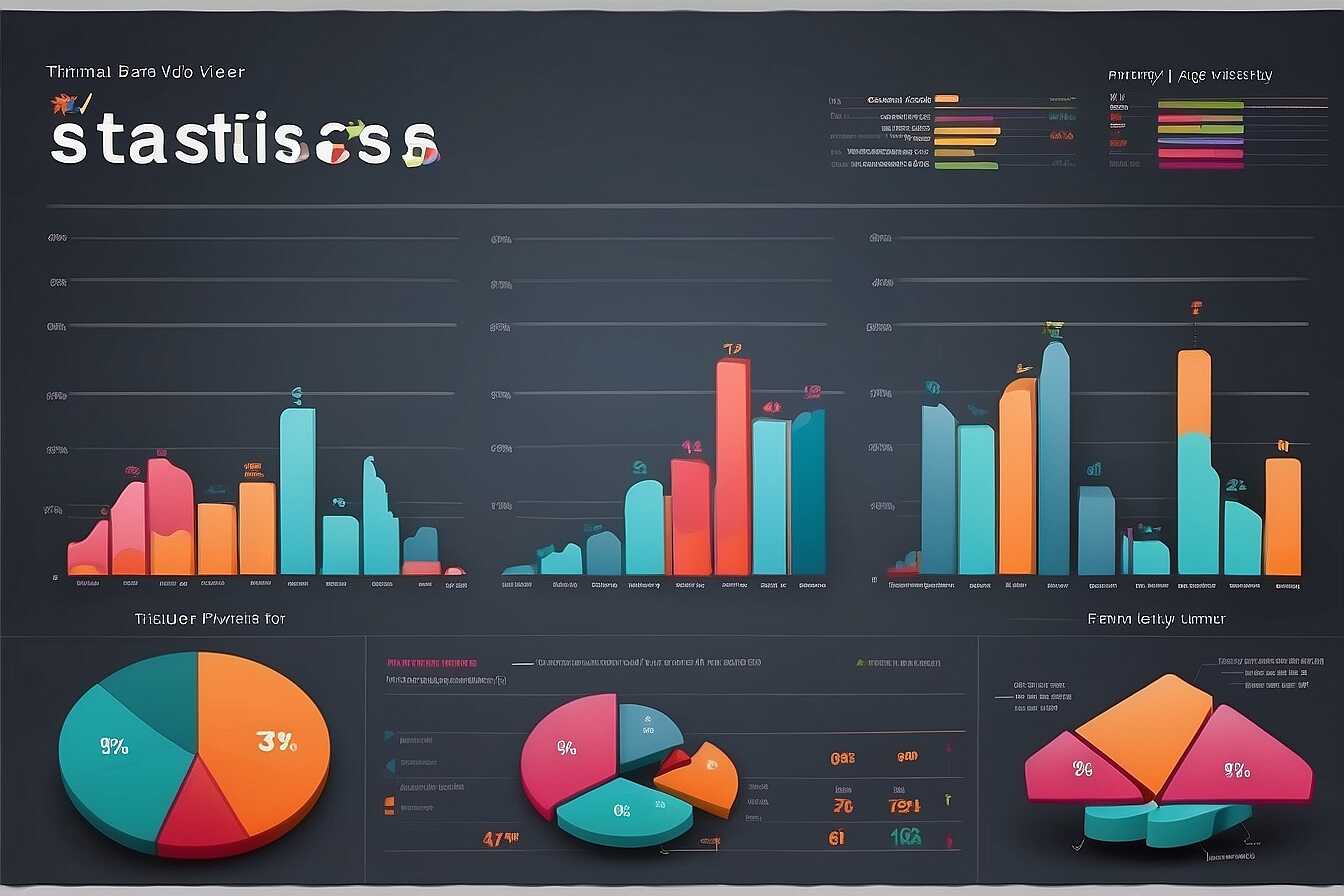Using AI to optimize content updates and refresh strategies can significantly enhance your website’s performance. By leveraging artificial intelligence, you can streamline content management and improve SEO outcomes. At Metrics Rule, we specialize in helping businesses in Vancouver utilize AI technology to update and refresh website content effectively, leading to increased engagement and higher search rankings.
Why Regular Content Updates are Essential for SEO Success
Regular content updates are crucial for SEO success because they help maintain and improve your site’s visibility. Fresh, relevant content signals to search engines like Google that your website is active and valuable. This increases the likelihood of higher rankings and enhanced audience engagement. To ensure effective strategies for refreshing content, consider utilizing AI tools that analyze keyword performance and gaps. If done correctly, updating content can lead to better SERP positions and a boost in organic traffic. Experts recommend reviewing and refreshing content every 6 to 12 months, depending on its relevance and performance metrics.
Best Practices for Refreshing Content
When it comes to refreshing content effectively, implementing best practices can greatly enhance results. Start by analyzing existing content using tools to identify which pieces require updates based on their performance. Incorporating new keywords and data can provide fresh insights that keep your content relevant. Furthermore, engaging with user feedback through reviews and performance analytics can uncover areas for improvement. To maximize SEO rankings, ensure that updated content aligns with current trends and user intent. This methodology not only improves your site’s reliability but also resonates with your audience, enhancing their overall experience.
How to Conduct a Content Audit for Refresh Opportunities
To identify outdated content, start by analyzing metrics such as page views, bounce rate, and time on page. Use tools like Google Analytics for performance data and SEMrush for SEO insights. This helps you recognize which pieces require updates or complete overhauls. As a best practice, consider running a content audit at least twice a year to ensure your website stays relevant and engaging. This strategy enhances your SEO efforts by ensuring that your content remains valuable and meets the needs of your audience.
Essential Tools for Effective Content Auditing
Using essential tools like Ahrefs and Screaming Frog can provide detailed insights into your content’s performance. Ahrefs helps analyze backlinks and organic traffic, while Screaming Frog can audit SEO elements like title tags, meta descriptions, and header tags. These tools can handle large datasets efficiently and improve your overall analysis process. Regularly auditing your content with these tools ensures you identify which pages need updates and enhances your chance of ranking higher in search engine results. Combine these insights with user feedback to create a focused content refresh plan.

Choosing the Right AI Tools for Content Enhancement
Several leading AI tools can aid in content enhancement and optimization. These include platforms like Grammarly for writing assistance, Clearscope for SEO content optimization, and MarketMuse for comprehensive content research. To compare features of different tools, review user feedback, analyze performance metrics, and consider how well they align with your specific content needs. The average cost range for popular AI tools designed for SEO optimization can vary from $20 to over $300 monthly, depending on features and subscription levels.
Comparing Features of AI Tools for Content Management
When comparing features of various AI tools for content management, look for reliability, ease of use, and essential features that enhance content performance. Tools should enable you to streamline processes, enhance keyword research, and provide automated content analysis. Pay attention to reviews from experienced users to gauge how well each tool improves SEO efficiency. Additionally, consider each tool’s support for e-commerce applications, as these features can significantly enhance your site’s performance in search results.
Interesting Numerical Insights for Content Management
- Over 60% of marketers use AI tools for content creation or updates.
- Websites that refresh their content regularly can see a 40% increase in organic traffic.
- AI tools can analyze and suggest improvements for over 1,000 web pages in just minutes.
- Using AI to track performance can provide more than 10 actionable insights daily.
- Studies show that website engagement increases by 25% with regular content updates.
- Content updated with AI tools can improve SEO rankings by 15-20% on average.
- Marketers report up to 30% time savings when using AI for content strategies.

Leveraging AI for Effective Keyword Discovery and Clustering
AI can streamline the keyword discovery process by analyzing vast amounts of data quickly and reliably. It helps identify relevant keyword terms by evaluating trending topics and search patterns. Utilizing AI tools, such as SEMrush or Ahrefs, enables SEO professionals to generate lists of potential keywords. These tools often provide features that cluster keywords based on semantic relevance, enhancing your overall content strategy. To effectively optimize your content updates, ensure you have at least five strong keyword clusters that can improve your website’s SEO performance.
Choosing the Best AI Tools for Keyword Clustering and Discovery
When it comes to selecting the best AI tools for keyword clustering and discovery, focus on features that enhance efficiency and provide reliable results. Tools like Moz, Keywordtool.io, and Ubersuggest are designed to automate the research process, allowing users to generate keyword clusters based on data-driven insights. These tools often provide comprehensive analytics that can help you compare keyword performance and make informed decisions. By clustering your keywords effectively, you can create more targeted content that improves both engagement and search engine rankings.

Enhancing Content Quality Through AI Writing Assistance
AI writing tools can significantly improve the reliability and quality of your content updates. By using these tools, you can efficiently generate ideas, structure your content, and refine your writing. Popular AI tools like Grammarly, Jasper, and Copy.ai deliver features that enhance engagement and clarity. For optimal SEO performance, research suggests including around five to seven keywords in each piece. This ensures your content remains relevant and discoverable, aligning with search engines’ algorithms.
Benefits of Using AI Writing Tools in Content Management
Using AI writing tools in your content management process enhances overall productivity and quality. These tools help streamline research by quickly analyzing large datasets for relevant keywords. For example, an AI tool designed for keyword extraction can assist in identifying trending topics and gaps in your existing content. By implementing these features, you improve your content’s reliability and make it more engaging for your audience. Additionally, AI tools can test different versions of your content, allowing for data-driven decisions that lead to higher conversions and better SEO results.
Key Advantages of Leveraging Automation in Content Review
- AI helps identify trending topics, ensuring relevant content creation.
- AI technology can optimize content length, improving readability and engagement.
- Automated SEO analysis boosts search engine rankings for improved visibility.
- AI-driven insights assist in surfacing underperforming content needing updates.
- Real-time data analysis enhances timely content adjustments for better performance.
- Using AI tools can streamline collaboration between content teams for effective output.
- AI can personalize content suggestions, leading to higher user engagement rates.

Streamlining Content Updates Using AI Automation
AI technology significantly streamlines the process of updating website content by automating routine tasks. Businesses can use AI tools to analyze existing content, identify outdated material, and suggest relevant updates. This reduces the manual effort needed for content refreshment, enhancing efficiency. Popular AI tools for content updates include Clearscope, MarketMuse, and Frase, which offer features such as keyword optimization, content gap analysis, and data-driven suggestions for improving SEO performance. For best results, businesses should aim to update their content every 3 to 6 months, depending on their industry and audience needs.
Choosing the Right AI Tools for Content Automation
When selecting AI tools for content automation, consider key features that enhance the content update process. Tools like Clearscope allow you to assess how well your content aligns with user search intent and provide recommendations for improvement. Frase, on the other hand, can generate optimized content briefs based on data-driven insights, ensuring your material remains relevant and engaging. Look for solutions that combine ease of use with powerful analytics, which can help ensure that your content refresh techniques deliver impressive results in search engine rankings.
Evaluating the Success of AI-Driven Content Updates
To measure the impact of AI-driven content updates, focus on various SEO performance metrics and user engagement analysis. Key metrics include organic traffic, bounce rates, and click-through rates. Review Google Analytics and other tools to ensure you capture trends over time. Look for specific data points, like average session duration and user behavior after updates. A successful content refresh should aim for at least a 15% increase in organic traffic, showcasing improved visibility.
Key Metrics to Track for Content Performance
Important metrics for evaluating AI-driven content updates include organic search rankings, keyword performance, and user engagement rates. Utilize tools like SEMrush or Moz to monitor keyword rankings over time. Track analytics such as page views, unique visitors, and average time on page. These metrics enable you to assess how updates enhance user experience and SEO. Regularly reviewing this data helps identify successful strategies and refine future content plans using AI insights.
Popular Tools and Their Use Cases for Content Optimization
- MarketMuse improves content quality but can be pricey for small teams.
- Clearscope enhances SEO recommendations; however, the learning curve can be steep.
- SEMrush provides comprehensive keyword analysis; great for detail-oriented users.
- Surfer SEO offers real-time content optimization but may lack user-friendly features.
- Frase.io focuses on answering user queries effectively, ideal for blogs and FAQs.
- ContentBot streamlines content generation; works well for quick copy needs but lacks depth.
- BuzzSumo enables tracking content performance; excellent for marketers but may miss niche insights.
Adapting to New Trends in AI and Content Marketing
To stay updated on AI trends in content marketing, subscribe to industry newsletters, attend webinars, and follow relevant social media accounts. Utilize platforms like LinkedIn, which provides updates from experts and companies focused on AI advancements. For continuous learning, review resources like the latest SEO blogs, such as Search Engine Land, and participate in forums like Webmaster World. Many new AI tools for content optimization are likely to be launched in 2025, emphasizing the importance of staying informed to enhance your SEO strategies effectively.
Finding Reliable Resources for Learning AI and SEO
Finding reliable resources for learning about AI and SEO involves identifying key industry experts and organizations that provide updated content. Look for websites offering specialized SEO insights, including blogs from Metrics Rule, which focus on the technical aspects of SEO and AI applications. Join communities like the IMG community, where professionals share experiences and reviews of the latest tools. Engage in online courses that enhance your understanding of AI-driven content optimization. Continuous testing and practical experience with these resources ensure you stay at the forefront of AI trends in content marketing.
